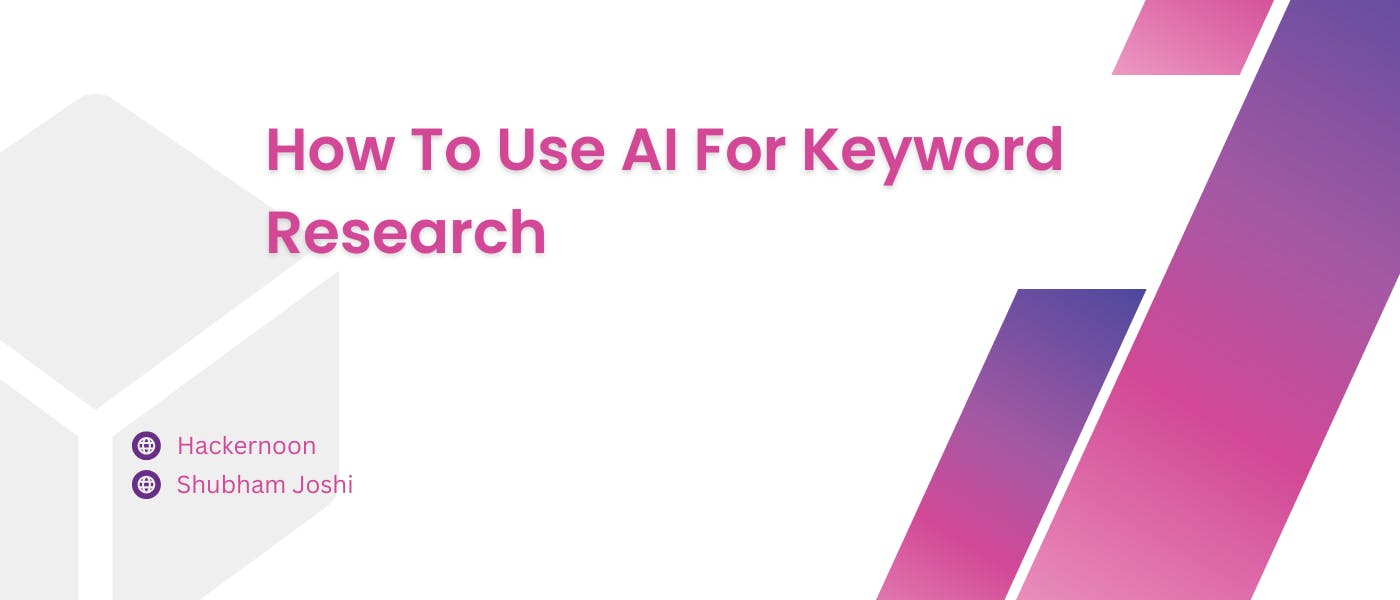Introduction
Keyword research is the foundation of every successful SEO strategy. It determines what content you create, how it's structured, and who it reaches. But traditional keyword research is time-consuming and often requires switching between multiple tools. That’s where AI comes in.
In this guide, you’ll learn how to automate keyword research using AI, streamline your workflow, and discover better-performing keywords faster than ever before.
What Is AI-Powered Keyword Research?
AI-powered keyword research leverages machine learning and natural language processing (NLP) to analyze massive datasets, identify patterns, and surface relevant keyword opportunities at scale.
How It Differs from Traditional Methods:
- Traditional: Manual entry, human analysis, limited tools
- AI-based: Automated suggestions, real-time trends, semantic clustering
Key Benefits of AI Automation:
- Saves time and effort
- Surfaces hidden keyword opportunities
- Helps understand search intent more accurately
- Continuously adapts to evolving search trends
Types of AI Tools for Keyword Research
AI tools come in various shapes and specialties. Here's how they can assist your SEO workflow:
1. AI SEO Platforms
These tools use AI to analyze keywords, competition, and SERP trends:
- Surfer SEO – for content optimization and keyword planning
- SEMrush AI – offers keyword intent analysis and clustering
- Ahrefs & Moz (AI updates) – predictive keyword suggestions
2. Large Language Models (LLMs)
You can use tools like ChatGPT or Gemini to:
- Generate long-tail keyword ideas
- Identify related questions people ask
- Group keywords by topic/theme
3. Google’s AI (SGE)
Google’s Search Generative Experience (SGE) shows how AI will change keyword trends:
- Conversational search terms
- Voice-activated keywords
- Contextualized SERP suggestions
Step-by-Step Guide to Automating Keyword Research
Step 1: Define Your Niche or Topic Area
Start with a seed keyword, content pillar, or product niche. Example: “vegan protein powder.”
Step 2: Use AI Tools to Generate Keyword Ideas
- Use ChatGPT: “Give me 30 long-tail keywords related to vegan protein powder.”
- Use tools like SEMrush or Surfer’s AI assistants to auto-generate clusters.
Step 3: Cluster and Analyze Search Intent
- Use AI to group keywords by intent (informational, navigational, transactional).
- Example tools: SEO.ai, Keyword Insights, ChatGPT + spreadsheet automation
Step 4: Filter by Volume, Competition & Relevance Automatically
Many AI tools can:
- Highlight keywords with optimal volume-to-competition ratio
- Predict potential ranking difficulty
- Recommend keyword gaps based on your domain
Step 5: Export, Organize & Map to Content Strategy
- Export lists from tools like Surfer or ChatGPT into Notion or Sheets
- Use keyword clustering to build content silos or topic clusters
Best AI Tools for Keyword Research in 2025
|
Tool |
Use Case |
Pricing |
|---|---|---|
|
ChatGPT |
Ideation, clustering, intent tagging |
Free/Paid |
|
Surfer SEO |
SERP analysis, keyword strategy |
Paid |
|
SEMrush |
Competitive research, keyword difficulty |
Freemium |
|
Keyword Insights AI |
Automated clustering, intent |
Paid |
|
Google Trends + Gemini |
Topic validation, trends |
Free |
Using ChatGPT for Keyword Clustering and Expansion
Prompt Example:
“Group these keywords into 5 clusters based on search intent: [list of keywords]”
Use Cases:
- Group keywords into blog topic ideas
- Map FAQs for product landing pages
- Expand one keyword into 50 content ideas
Common Mistakes to Avoid
- Over-Automating Without Strategy AI is a tool—not a replacement for human judgment. Always validate keywords with real-world logic.
- Ignoring Context AI might recommend keywords that are irrelevant in your niche or region. Cross-check intent and localization.
- Keyword Stuffing or Repetition Don’t blindly follow AI keyword suggestions in content—prioritize readability and user experience.
How to Integrate AI Keyword Research into Your SEO Workflow
- Build Content Calendars Automatically Use keyword clusters to define weekly blog topics.
- Create Topic Clusters for Authority Building Let AI help map related terms into pillar pages and supporting articles.
- Use AI to Suggest Internal Linking Opportunities Tools like Link Whisper or even ChatGPT can help build internal link maps based on your keyword list.
Future of AI in Keyword Research
The future is contextual, personalized, and predictive.
Expect AI to:
- Suggest keywords based on user behavior and device preferences
- Adapt to voice and conversational search
- Understand semantic meaning better than ever
Conclusion
AI is not just a helpful tool—it’s becoming essential to effective keyword research. By automating the process, you save time, uncover better opportunities, and stay ahead of ever-changing SEO trends.
Start small: Use ChatGPT for ideation. Try Surfer for clustering. Use SEMrush to validate. With the right tools and strategy, AI can supercharge your content’s performance from day one.


